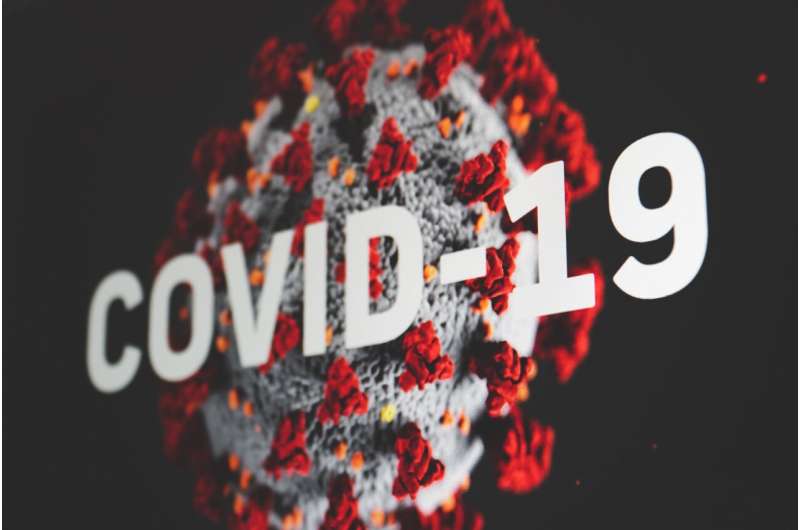This article has been reviewed according to Science X's editorial process and policies. Editors have highlighted the following attributes while ensuring the content's credibility:
fact-checked
peer-reviewed publication
trusted source
proofread
How long should kids isolate after they've contracted COVID-19?

School policies that require students with COVID-19 to stay out of the classroom for five days are more than sufficient. That's because children infected with the omicron variant remained infectious for a median time of three days after testing positive for the virus, according to a study by the USC Schaeffer Center for Health Policy & Economics and Stanford University.
"We're basically saying five days is more than sufficient; public-health and education leaders may consider shorter durations," said co-author Neeraj Sood, Director of the COVID-19 Initiative and a senior fellow at the USC Schaeffer Center.
The study found the median time of infectivity was three days, with 18.4% of children still infectious on day five and 3.9% infectious on day 10. The study also found no association between how long children were infectious and whether they were vaccinated, suggesting return-to-school policies may not need to discriminate by vaccine or booster status.
The study, published in JAMA Pediatrics, seeks to inform policymakers who grapple with how long children must isolate when they contract COVID-19. Such self-isolation policies, aimed at halting the spread of the virus, can negatively interrupt children's education. The rules—which have been implemented in school districts from New York City to Los Angeles—have been guided by little data so far, the authors said.
"We want to protect the other children in the school who could potentially get infected, but at the same time, we don't want to disrupt education for the child who is infected, given the amount of disruption that's already happened," said Sood, who is also a professor at the USC Sol Price School of Public Policy. "The duration of infectivity is an important parameter into figuring out what the optimal duration of self-isolation should be."
Researchers examined nasal swabs from COVID-infected children
Researchers partnered with a virus testing company and examined nasal swabs from 76 children in Los Angeles County who were between the ages of seven and 18 and tested positive for COVID-19. Survey participants provided samples during five home visits over a 10-day period, and samples were examined in a lab to find evidence of cell death, a sign of infectivity. All participants were infected with the omicron variant of COVID-19.
"We wanted to capture how infectivity changed over the 10-day window," said lead author Nikhilesh Kumar, a Doctor of Medicine student at the USC Keck School of Medicine. The study was also co-authored by Eran Bendavid, an infectious diseases physician and an Associate Professor of Medicine at Stanford University.
The findings are consistent with previous research on adults who contracted the omicron variant, which showed no association between vaccination status and time of infectivity. That earlier research, published in the New England Journal of Medicine, showed adults with omicron were infected slightly longer, with a median time of five days, the authors noted.
Sood called for further research so policymakers can consider adjusting the time students must stay out of the classroom.
"The virus will keep mutating," Sood noted. "We need to continue doing studies like this because the next variant may have a longer or shorter duration of infectivity."
More information: Duration of SARS-CoV-2 Culturable Virus Shedding in Children, JAMA Pediatrics (2023). DOI: 10.1001/jamapediatrics.2023.4511




















